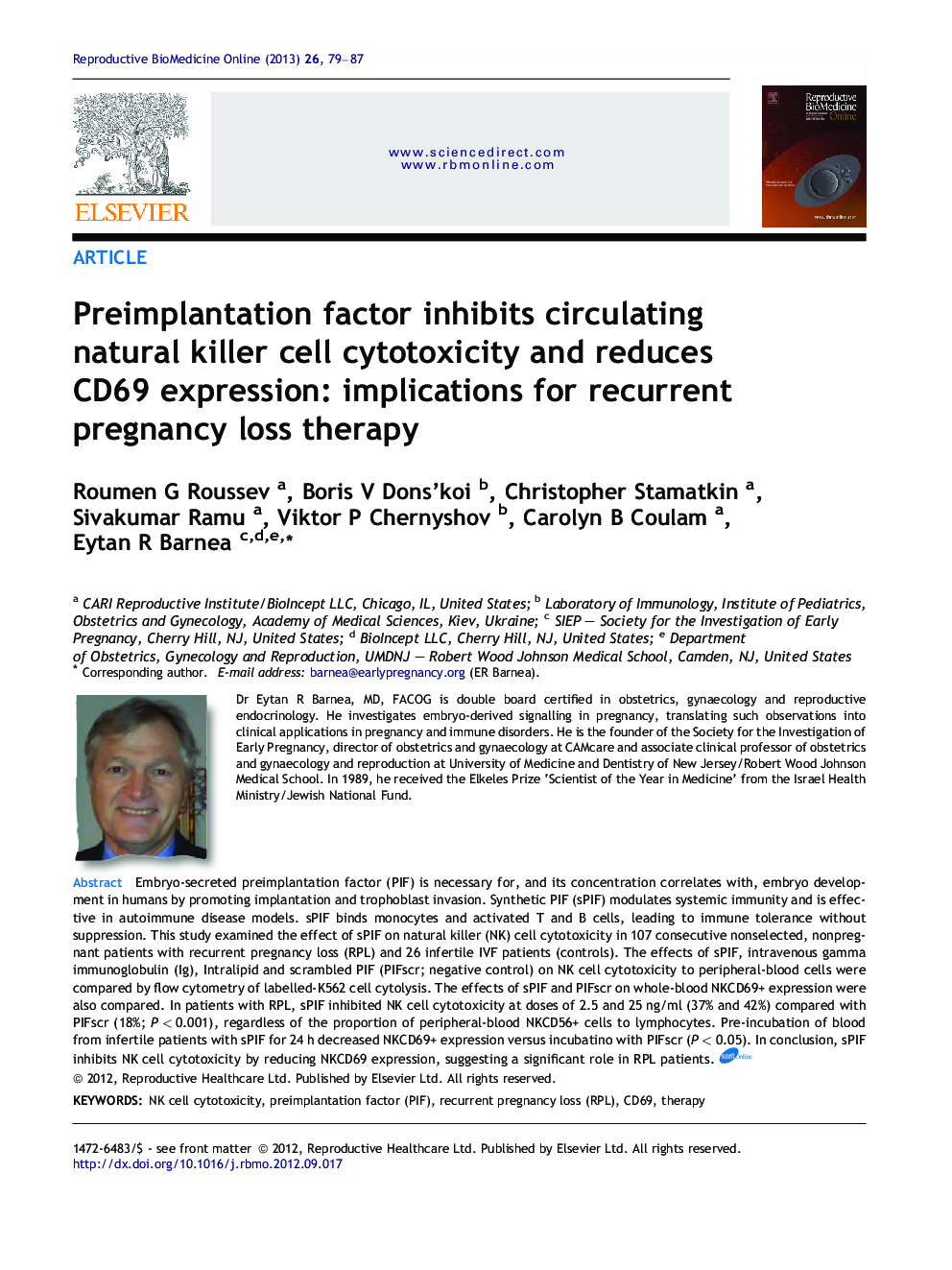| Article ID | Journal | Published Year | Pages | File Type |
|---|---|---|---|---|
| 3970608 | Reproductive BioMedicine Online | 2013 | 9 Pages |
Embryo-secreted preimplantation factor (PIF) is necessary for, and its concentration correlates with, embryo development in humans by promoting implantation and trophoblast invasion. Synthetic PIF (sPIF) modulates systemic immunity and is effective in autoimmune disease models. sPIF binds monocytes and activated T and B cells, leading to immune tolerance without suppression. This study examined the effect of sPIF on natural killer (NK) cell cytotoxicity in 107 consecutive nonselected, nonpregnant patients with recurrent pregnancy loss (RPL) and 26 infertile IVF patients (controls). The effects of sPIF, intravenous gamma immunoglobulin (Ig), Intralipid and scrambled PIF (PIFscr; negative control) on NK cell cytotoxicity to peripheral-blood cells were compared by flow cytometry of labelled-K562 cell cytolysis. The effects of sPIF and PIFscr on whole-blood NKCD69+ expression were also compared. In patients with RPL, sPIF inhibited NK cell cytotoxicity at doses of 2.5 and 25 ng/ml (37% and 42%) compared with PIFscr (18%; P < 0.001), regardless of the proportion of peripheral-blood NKCD56+ cells to lymphocytes. Pre-incubation of blood from infertile patients with sPIF for 24 h decreased NKCD69+ expression versus incubatino with PIFscr (P < 0.05). In conclusion, sPIF inhibits NK cell cytotoxicity by reducing NKCD69 expression, suggesting a significant role in RPL patients.There is a continuous search to identify safe and effective agents to counteract recurrent pregnancy loss (RPL). Preimplantation factor (PIF) secreted by the embryo at the 2-cell stage is present throughout viable pregnancy but absent in nonviable pregnancy. Its immunomodulatory (not suppressive) effects promote embryo acceptance and maintenance by mother/host, control inflammation, facilitate uterine environment and placental embedding. Synthetic PIF (sPIF) was used to complete PIF’s role as a targeted, safe treatment for immune-based RPL. Previous reports showed sPIF’s significant protective systemic effect against maternal factors present in RPL serum. Herein is examined sPIF’s ability to inhibit the local protective toxicity induced by natural killer (NK) immune cells in a representative number of RPL patients. When elevated in blood, NK cells are associated with RPL. Low-dose physiological sPIF was highly effective to inhibit NK cell toxicity. Side-by-side comparison showed that sPIF is equally effective at a lower dose than intravenous gamma immunoglobulin or Intralipid treatment currently used. The sPIF effect on NK cells was targeted, indicating specific action. Overall, sPIF may represent a safe, effective and nontoxic immune-based therapy against RPL.
